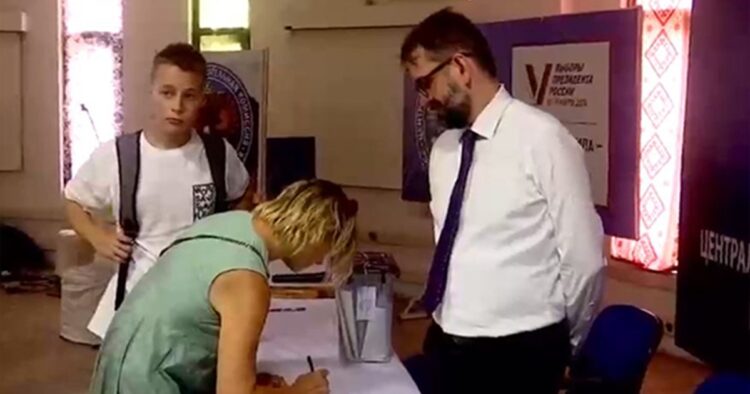Russian citizens residing in Kerala had the opportunity to cast their votes for the Russian presidential elections at a specially arranged booth located at the Honorary Consulate of the Russian Federation, Russian House, in Thiruvananthapuram. Ratheesh Nair, the Honorary Consul of Russia and Director of the Russian House, expressed gratitude to the Russian citizens in Kerala for their cooperation in the polling process, marking the third time such arrangements have been made.
Speaking to ANI, Ratheesh Nair emphasized the significance of the polling initiative, stating that it is not only for Russian nationals residing in Kerala but also for visiting tourists from Russia. He thanked the Central Election Commission of the Russian Federation for their cooperation and highlighted the enthusiasm of Russian citizens in Kerala to participate in electing their new president.
Sergey Azurov, Senior Consul General in Chennai, affirmed the purpose of organizing preliminary voting in the framework of the presidential elections, aiming to provide an opportunity for Russian citizens living in India to exercise their voting rights.
Ulia, a Russian citizen in Kerala, expressed gratitude towards the Russian House and the consulate general in India for facilitating the voting process. She mentioned that all Russian citizens participating in the election, whether permanent residents or visiting tourists, were thankful for the chance to fulfill their responsibility in the electoral process.
The presidential elections in Russia are scheduled to take place from March 15-17, with citizens voting across the 11 time zones of the country. The Central Election Commission (CEC) of Russia has approved three candidates to oppose President Vladimir Putin, including Leonid Slutsky of the Liberal Democratic Party, Vladislav Davankov of the New People Party, and Nikolay Kharitonov of the Communist Party. However, as reported by CNN, these candidates are perceived to be satisfactorily pro-Kremlin, with none opposing Russia’s military actions against Ukraine.
With most opposition candidates either deceased, incarcerated, exiled, or barred from running, Putin’s victory is widely anticipated. His reelection would extend his rule until at least 2030, following constitutional changes in 2020 that enable him to potentially remain in power until 2036.
The arrangements made at the Russian House in Thiruvananthapuram reflect the commitment to democratic processes, ensuring that Russian citizens residing in Kerala have the opportunity to participate in the presidential elections despite being geographically distant from their home country.

















Comments